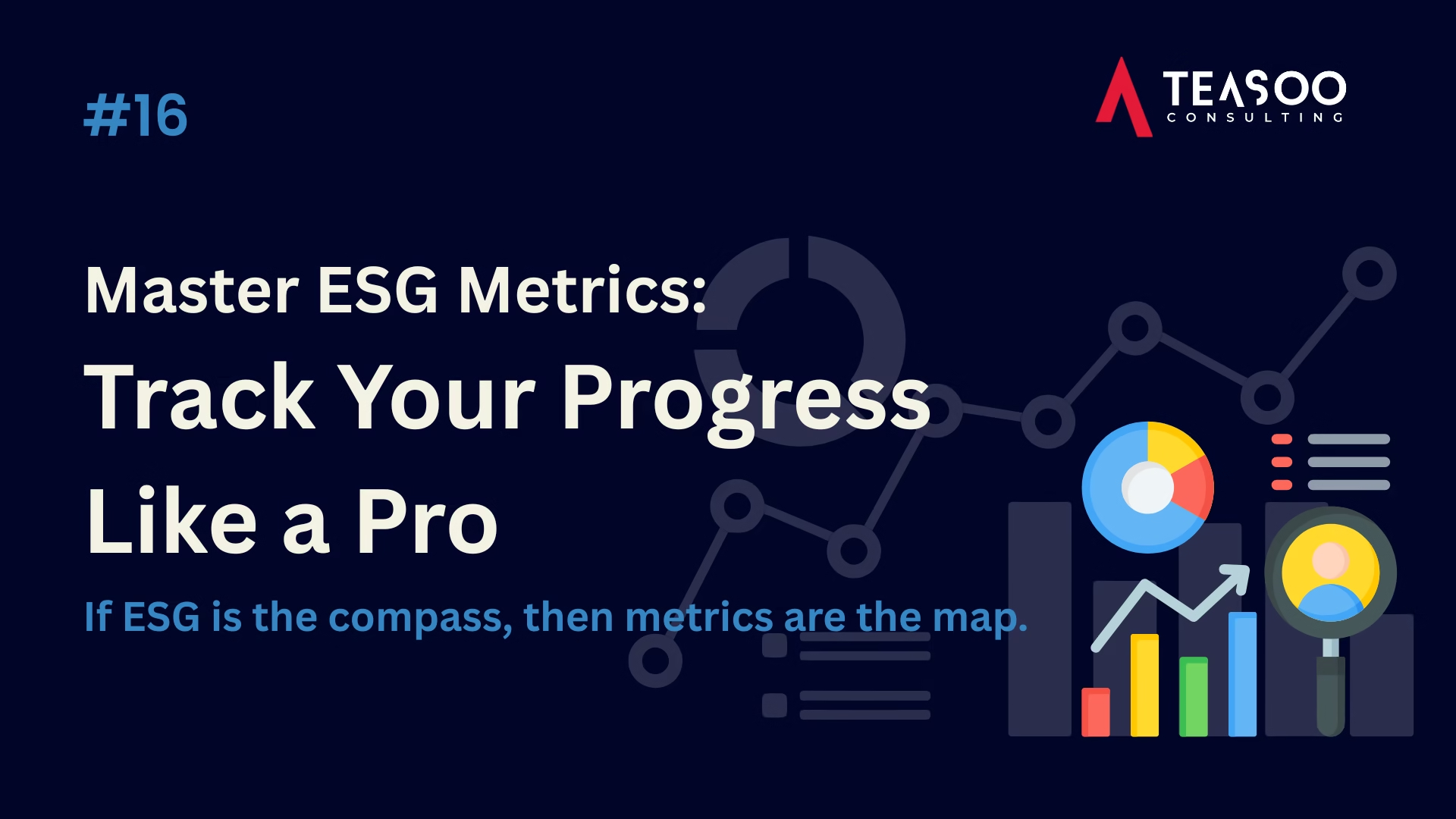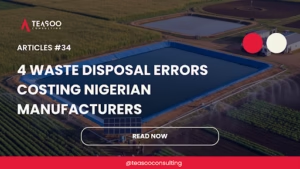#16 Master ESG Metrics: Track Your Progress Like a Pro

If ESG is the compass, then metrics are the map.
Today, businesses across the globe are facing increasing pressure from regulators, investors, and stakeholders to not just commit to ESG principles but to track, measure, and prove the progress they claim to be making. But in Nigeria, many businesses are still navigating without a map.
Why ESG Metrics Matter
Understanding your ESG footprint isn’t just about ticking boxes for compliance. It’s about making more intelligent business decisions, building stakeholder trust, and unlocking long-term value. By mastering ESG metrics, you gain a powerful tool that can guide your business towards a more sustainable and profitable future.
Whether you’re using the Global Reporting Initiative (GRI), SASB, ISSB, or TCFD, the common thread is this: data matters. Metrics bring clarity. They show you where you’re bleeding, where you’re thriving, and where there’s untapped opportunity.
At Teasoo, we say it plainly: You can’t improve what you don’t track.
ESG in Action: Dangote Group’s CNG Truck Conversion
Let’s bring this home.
Recently, the Dangote Group began converting thousands of its heavy-duty trucks from diesel to Compressed Natural Gas (CNG). This move isn’t just environmentally smart; it’s economically brilliant.
The transition is projected to cut diesel consumption by nearly 50%, leading to billions in cost savings over time. It will also reduce emissions, lower maintenance costs, and critically free up cash flow for reinvestment and growth.
This is what ESG intelligence looks like: strategic, measurable, and impactful.
A Hypothesis for Nigerian Businesses: Diesel to Solar
Now imagine this:
“If Nigerian SMEs and corporates transition from diesel-powered generators to solar and battery-powered systems, their 5-year cumulative savings could transform balance sheets, free up working capital, and increase enterprise resilience.”
It’s a bold hypothesis, but it’s grounded in reality. While upfront capital investment in solar infrastructure may seem steep, the elimination of recurring diesel costs, reduced exposure to fuel price volatility, and enhanced energy reliability offer phenomenal returns over time.
If you removed diesel as a line item from your books for five years, what would that do for your cash flow? Imagine it, do the maths and the savings over time will wow you.
That’s the kind of question ESG metrics help you answer with confidence.
So, Where Do You Begin?
Tracking your ESG progress doesn’t require a PhD in sustainability. It starts with efficient but straightforward principles that any business can implement. You’re more than capable of mastering ESG metrics and using them to drive your business forward.
✅ Establish Your Baseline
What are your current emissions, energy use, waste output, or social/community engagement levels?
✅ Choose a Framework
Use standards like GRI, SASB, or ISSB based on your industry and reporting needs. Even a lite version of these can set you in the right direction.
✅ Use the Right Tools
Excel templates, ESG dashboards, or software like Teasoo ESG-Horizon, Sustainalytics, Diligent ESG, or Worldfavor can help you stay consistent.
✅ Track What Matters
Start with 3–5 KPIs per ESG pillar (e.g., energy consumption, employee satisfaction, board diversity, supplier compliance).
✅ Set Milestones
Quarterly reviews to measure progress and adjust strategy accordingly.
In Summary
Mastering ESG metrics is not just about compliance it’s about competitive advantage. As Nigerian businesses look to grow, expand, and attract funding, integrating ESG principles and tracking their performance can become the spark that propels them to the next level.
Your ESG data is not just a report it’s a powerful narrative of transformation waiting to be told. By mastering ESG metrics, you’re not just tracking your progress, you’re writing a story of positive change and growth for your business and the world.
Want help setting up your ESG tracking framework? Reach out to the Teasoo Consulting team today.






